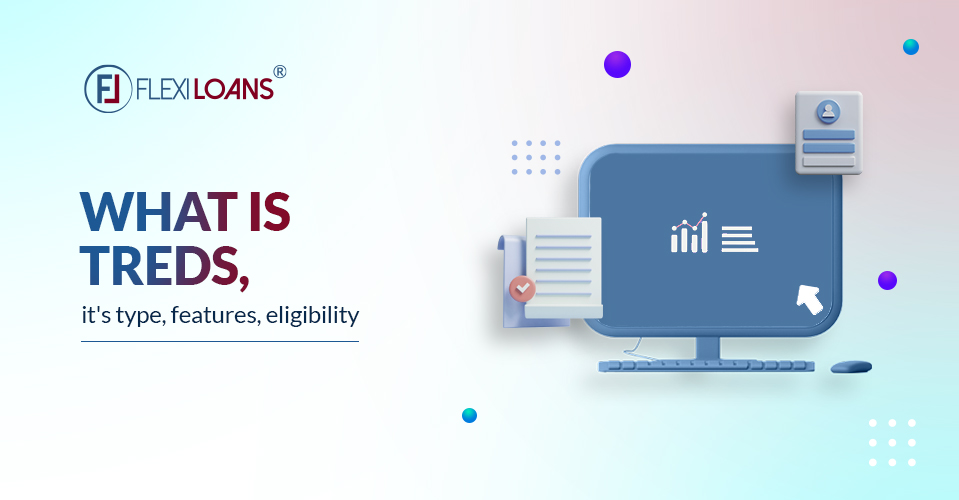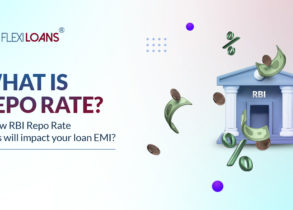Jul 03, 2022

Introduction
Micro, Small and Medium Enterprises (MSME) continue encountering hardships in getting business loans, particularly converting trade receivables into liquid funds. To mitigate the hardships faced by MSMEs, RBI came out with a concept paper on “MSME Factoring-Trade Receivables Exchange” and created an Institutional Structure called M1xchange to finance trade receivables. In addition, RBI granted permission to three entities, namely, M1xchange (Mynd Solutions Pvt Ltd.), RXIL (NSE & IDBI joint venture), and Invoice Mart (Axis Bank and mjunction services joint venture), to create and operate respective platforms. These platforms have transformed MSMEs’ access to collateral-free working capital from lending institutions using digital processes.
What is TReDS and its Significance?
TReDS full form is Trade Receivables Discounting System. TReDS is a mechanism to facilitate easier financing of their trade receivables from buyers in the form of corporate Institutions, PSUs, and Government Agencies through TReDS lenders. The significance of TReDS lies in simplifying the digital process to upload, accept, discount, trade and settle invoices/bills raised by MSMEs. Furthermore, TDS can manage receivables and reverse factoring, facilitating large transaction volumes and better pricing for MSMEs. In addition, TReDS facilitates MSME loans by discounting their bills and invoices through a digital process, enabling them to meet liquidity requirements, which is the primary purpose of the platforms launched from 2018 onwards.
Who are the Participants in TReDS?
MSME sellers, corporate and other purchasers, PSUs, Government Departments, and lenders (Banks, NBFC Factors, and other Financial Institutions) are direct participants in the TReDS. The TReDS permissioned entities provide the Platform to all the participants, bringing them together to upload, accept, discount, trade and settle the bills or invoices raised by MSMEs. The Bankers of sellers and buyers get access to the TReDS portals for getting information on the portfolio of discounted invoices or bills of respective clients. The TReDS partners with technology experts, system integrators, and entities offering dematerialisation services for extending services.
What are the Eligibility Criteria to set up and operate TReDS Platform?
Financial Criteria
- TReDS cannot take any credit risk; its minimum paid capital shall be INR 25 crore.
- Foreign shareholding shall be following the extant foreign investment policy.
- Other than promoters are not allowed to hold more than 10% of the equity capital.
- The sound financial strength of the promoters/entities applying for TReDS is essential.
Due diligence of promoters/entity
- RBI would assess the fit and proper criteria of the applicants.
Technological Capability
- TReDS has to be capable of providing a digital platform to all the participants.
- Real-time sharing of information about bills/invoices, discounting and quotes by the applicant.
- A Business Continuity Plan should be in place for disaster recovery.
- Online surveillance system to check system manipulation.
What are the Salient Features of a TReDS?
- Purchasers
- Get speedier access to the working capital within 24 hours when MSMEs sell an invoice.
- A good credit profile gets MSMEs the best rate of return on investments.
- Numerous financiers are prepared to lend to credit-worthy MSMEs at a reduced interest rate.
- Without taking any debt in your books, MSMEs get payment against receivables.
- Sellers
- Streamlined Vendor payments and one PlatformPlatform to release payments.
- Facilitates seamless system integration for quick data processing.
- Payments for procurement could be instantaneous, which reduces the business cycle.
- A variety of repayment options are available.
- Financiers
- All disbursements through Invoicemart qualify for Priority Sector Lending (PSL) norms.
- Connect with top-quality corporate and their MSME vendors.
- Access to data and customised reports could be obtained for reconciliation purposes.
- Since top-quality buyers are part of the PlatformPlatform, the risk of default is low.
How does the Trade Receivable Discount System (TReDS) Work?
Let’s understand the functioning procedure of the TReDS: –
- Factoring unit (FU) is standard terminology for the bill(s) of exchange or invoice(s), which contains the particulars of invoices/ bills of exchange as proof of the sale of goods or services by MSME sellers to buyers on the TReDS portal.
- The MSME seller creates a Factoring unit, whereas an MSME buyer creates a reverse Factoring unit.
- Depending upon the situation, FU is accepted by the counterparty, which could be the buyer or seller.
- After that, Financiers place bids for the invoice(s) or bills(s) of exchange.
- MSME seller or buyer, as the case may be, has the option of choosing the best price bid.
- The financiers release payments to MSME sellers at the agreed-upon discount rate.
- Maturity payment by the buyer of goods/services to the financier.
How to register on the TReDS platform?
TreDS portal registration is a standardised process for enrolling customers and sellers. Currently, TReDS portals have more than 10k MSMEs registered for availing business loans.
The user has to access one of the following three portals to complete registration: –
- M1xchange (Mynd Solutions)
- RXIL (Receivable Exchange of India Ltd)
- Invoice Mart (TREDS Ltd)
The following documentation has to be completed besides a one-time agreement between the parties involved: –
- Application Form
- Bank Confirmation Letter
- KYC documents of the applicant entity, promoters, authorised signatories, etc.
- The electronic debit mandate of the designated Bank account (applicable for Financiers and Buyers)
- Master Agreement
Why is TReDS a Mechanism?
- MSMEs could get quick access to working capital by auctioning trade receivables through TReDS portal.
- A Bank or lender can place bids on the invoices or bills from an MSME before the maturity of the bill or payment is received from the buyer.
- This process enables the speedier allocation of working capital to MSMEs.
Getting working capital or quick business loans using digital processes is streamlined. TReDS portals facilitate MSMEs to meet continuous liquidity requirements, which happens to be an off-balance sheet item; it doesn’t affect the financial health of MSMEs.
Conclusion
TReDS is a digital portal. It facilitates MSMEs to get funds in advance against trade receivables. The speedier access to funds allows them to meet liquidity requirements and manage their business efficiently. Since trade receivable financing is an off-balance sheet item, it could be an appropriate source of funding for cash-strapped MSMEsYou may access the Flexiloans portal for more information on business loan eligibility that provides digital business loans, unsecured business loans, collateral-free loans, and MSME loans, in addition to a business loan EMI calculator, at competitive interest rates.







